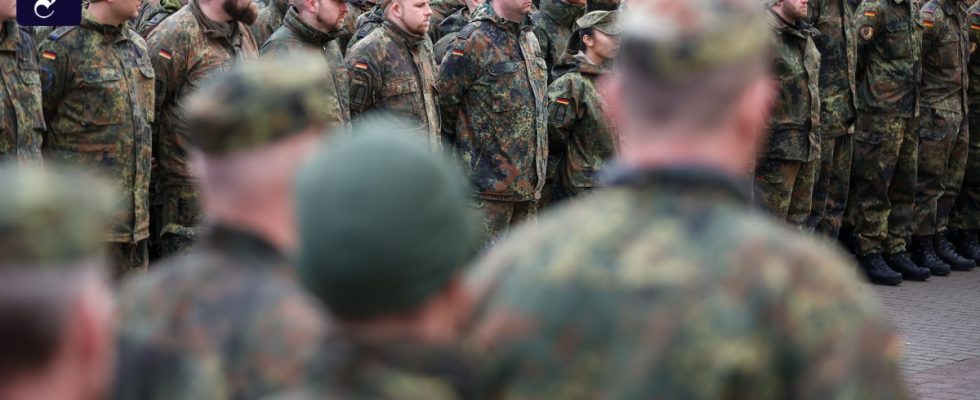DThe chairwoman of the Defense Committee in the Bundestag, Marie-Agnes Strack-Zimmermann (FDP), spoke to the FAZ on Monday in favor of the possibility of accepting Bundeswehr soldiers from the European Union without a German passport into the force. The idea is good. Germany needs to think about how to attract young people to the Bundeswehr: “We need more young women and men in this unusual profession.” Strack-Zimmermann was convinced that many people without German citizenship would be interested in becoming part of the force to become. “And so far they have been denied that.” It is important that the Bundeswehr opens up to these people.
The debate about the exact design must be conducted “without foaming at the mouth,” said Strack-Zimmermann. The idea could possibly also be expanded to include people from NATO countries that are not members of the EU, such as Norway. The proposal will not solve the Bundeswehr’s personnel shortage on its own, but it could be a way to address a larger group. “Basically, we have to start thinking in a much more European way,” said Strack-Zimmermann. “Ultimately, in the long term we have an interest in building a European army.”
Defense Minister Boris Pistorius (SPD) recently brought up a modified conscription and also opening up the troops to soldiers without a German passport. “We wouldn’t be the first armed forces in Europe to do that,” he told the “Tagesspiegel” last week. There are people in the country who live in Germany in the second or third generation but do not yet have German citizenship. “We are dedicating ourselves to this topic with the necessary thoroughness, but we are still at the beginning.”
Supporters also within the Union
There is also fundamental sympathy among the ranks of the Union for Bundeswehr soldiers without a German passport. The deputy chairman of the Union parliamentary group, Johann Wadephul (CDU), said that this idea was fundamentally correct. But the design is key. “Instead of providing answers, Boris Pistorius once again presented an idea in an interview without being specific,” said Wadephul. Too many questions remain unanswered: “Does this option only apply to citizens of EU or NATO countries or also beyond? What about citizens of states that are viewed as risk states in terms of security policy and some of which have travel restrictions for Bundeswehr members, such as Syria, Iran or Russia? Is complete knowledge of the German language necessary?” Pistorius stated that the Bundeswehr must be ready for war in five to eight years. “When it comes to HR strategy, that’s an incredibly short period of time. So he should act quickly.”
The Bundeswehr is suffering from an acute shortage of applicants. Pistorius is currently checking whether the target of a target strength of 203,000 soldiers set before his term in office will continue to exist. There are currently a good 181,600. There are also around 81,600 civilian employees.

